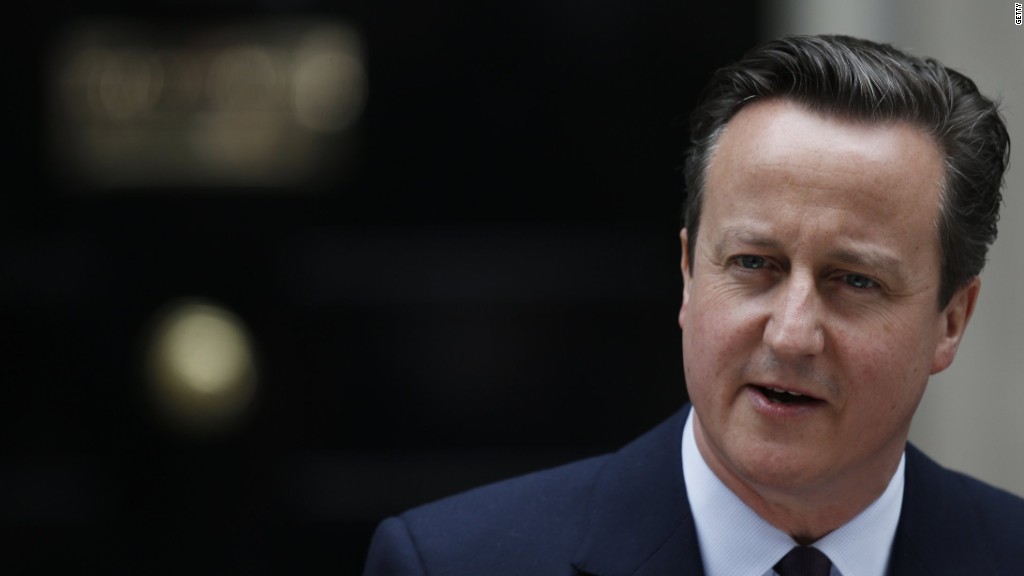
British voters have given David Cameron a second term as prime minister, a result that had investors and company bosses reaching for the champagne.
Once the election party is over, the Conservative leader may be nursing a headache.
Markets celebrated defeat for the left-leaning Labour Party, but there are plenty of other risks to business confidence and the U.K.'s impressive performance.
Here are five big challenges Cameron will have to navigate:
1. Europe
Cameron has pledged to give voters an "in or out" referendum on British membership of the European Union by 2017.
Analysts say the risk of a British exit from the EU -- or "Brexit" -- will create uncertainty for companies. "The proposed referendum could prompt some domestic and overseas investment to be delayed," said Azad Zangana, senior European economist at Schroders.
Moody's said a "Brexit" could affect the U.K.'s credit rating if Cameron is unable to replicate the benefits of membership.
Europe is Britain's biggest trading partner. The International Monetary Fund says U.K. trade with the EU is 55% higher than it would be outside the bloc.
Being part of the EU -- and having a strong voice within in -- also makes the U.K. more attractive to international partners and investors. The U.S. has made it clear it wants to see Britain in, as have many big businesses.

2. Immigration
Immigration is at the center of the European debate, following a period of rapid growth in the number of arrivals to Britain. Cameron has promised to curb the number of foreigners coming to Britain.
But freedom of movement within the EU is one of the bloc's key principles, and other members are unlikely to give ground on the issue. He will also have to balance calls for tougher controls with evidence that immigrants have helped drive the U.K. economic recovery.
Some companies and universities have already warned that they're struggling to recruit the skilled workers and academics they need.
Related: Complete coverage of UK election
3. Austerity
Britain continues to live way beyond its means: its budget deficit is among the highest in the developed world. Cameron has promised to balance the government's books, but after five years of austerity it will get harder to make the cuts he has proposed.
At the same time, he will be held to campaign pledges to spend more on healthcare and housing for people on low incomes.
"There was a fair bit of money thrown around during the campaign," said Tim Besley, professor at the London School of Economics.
Cameron will now have to tell voters how he plans to fund these promises, while standing by commitments to close the fiscal gap and not raise taxes.
Related: Is the British-American relationship really all that special?
4. Slowing growth
Britain grew faster than any other big developed economy last year, but the most recent numbers were disappointing -- growth plunged to 0.3% in the first quarter of this year, half the rate of expansion recorded in the last three months of 2014.
The Institute of Fiscal Studies says Britain is growing mainly thanks to consumer spending.
To boost growth and make it more sustainable, the new government will need to improve labor productivity -- the U.K. is still much less efficient than the United States, Germany and all other G7 economies, with the exception of Japan.
5. Dis-United Kingdom?
Scottish nationalists won the election in Scotland by a landslide. The stunning win will renew worries that Scotland could break away from the U.K. -- especially if the U.K. votes to leave the EU.
The risk of another vote on Scottish independence could spook investors in the years to come.


